Because I could not stop for death, He kindly stopped for me; The carriage held but just ourselves and immortality
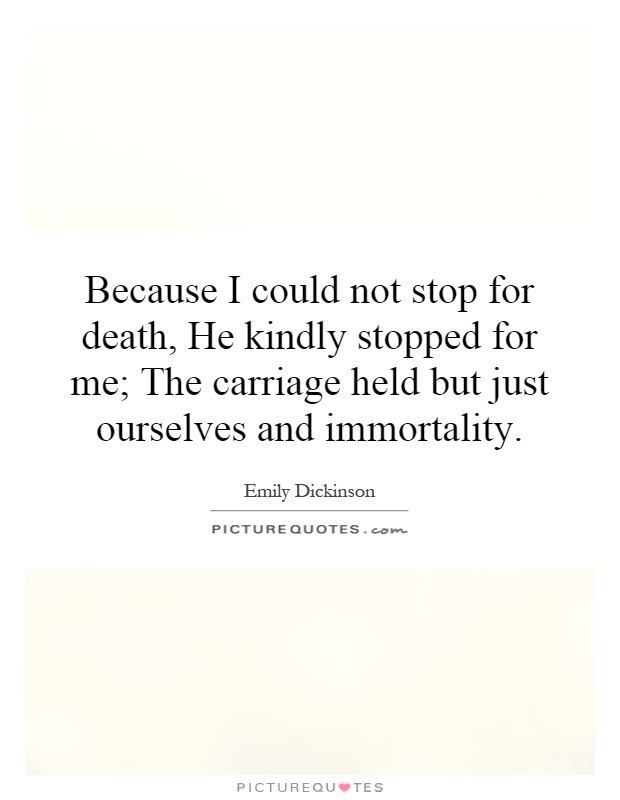
Because I could not stop for death, He kindly stopped for me; The carriage held but just ourselves and immortality
Emily Dickinson's poem "Because I could not stop for Death" is a haunting and thought-provoking exploration of the inevitability of death and the acceptance of mortality. The opening lines, "Because I could not stop for Death, He kindly stopped for me," immediately set the tone for the poem, as the speaker reflects on their own mortality and the unexpected arrival of death.The personification of Death as a kind and patient figure who stops to pick up the speaker in a carriage is a striking image that challenges traditional perceptions of death as a frightening and ominous force. Instead, Dickinson presents death as a gentle companion who accompanies the speaker on a journey towards the afterlife.
The carriage in which the speaker and Death ride holds only themselves and "immortality," suggesting that death is a solitary and personal experience that ultimately leads to eternal life. The inclusion of immortality in the carriage highlights the idea that death is not the end, but rather a transition to a new existence beyond the physical world.
Throughout the poem, Dickinson uses vivid imagery and symbolism to explore the themes of mortality, eternity, and the passage of time. The slow and steady pace of the carriage ride mirrors the gradual approach of death, while the passing scenes of the setting sun and the children playing evoke a sense of nostalgia and reflection on the fleeting nature of life.
The poem's ambiguous ending leaves the reader with a sense of mystery and wonder, as the speaker reflects on their own mortality and the eternal journey that lies ahead. Dickinson's exploration of death and immortality in this poem is both profound and poignant, inviting readers to contemplate the nature of life, death, and the afterlife.
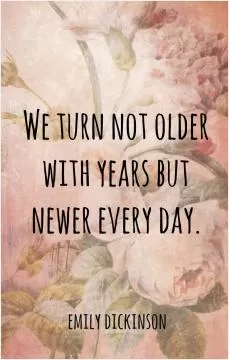



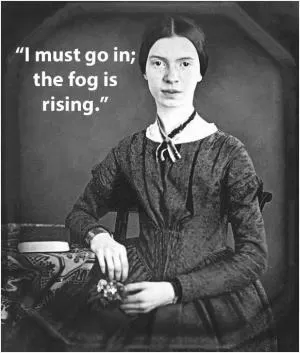
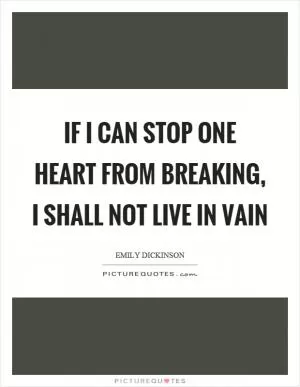


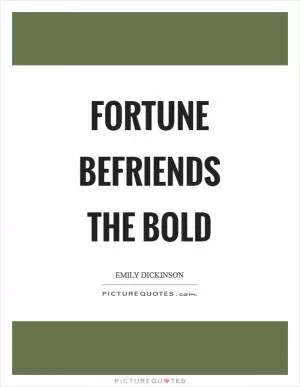
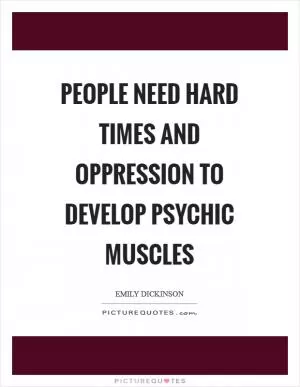
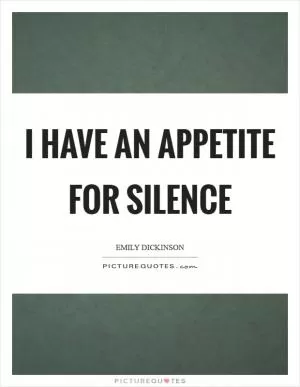

 Friendship Quotes
Friendship Quotes Love Quotes
Love Quotes Life Quotes
Life Quotes Funny Quotes
Funny Quotes Motivational Quotes
Motivational Quotes Inspirational Quotes
Inspirational Quotes